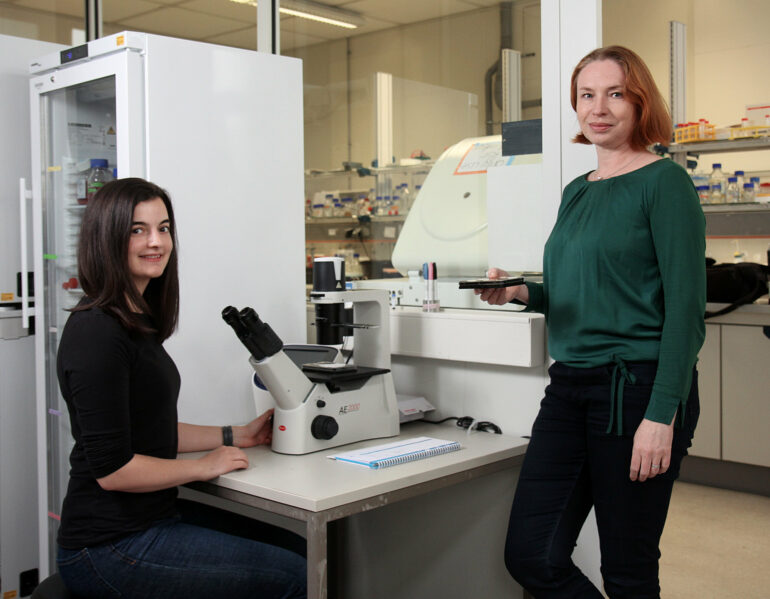Healthy human cells have two (diploid) sets of chromosomes. However, it may also happens that cells have a tetraploid (quadruple) set. Usually, they do not divide further and die, but some cells can escape this fate. An international team of researchers, in which a research group from the Technische Universität Kaiserslautern (TUK) was involved, has now shown that many mutations occur in the cells immediately after they are formed. This is because they do not have enough proteins that are essential for the reproduction of the genetic material. The errors arising in this process lead to mutations and can promote tumor formation. The work has appeared in the journal Nature.
In a healthy human cell there are 46 chromosomes: a double set of 22 chromosomes plus two sex chromosomes (XX or XY). The situation is different in cancer cells. Here, various genetic changes can be found, for example, parts of chromosomes are missing or are present several times.
However, there is still lack of scientific evidence as to how such an increased number of errors can occur. One explanation is provided by a recent study led by the French Institute Curie Research Center in Paris in collaboration with the group of Professor Dr. Zuzana Storchová at the Technical University of Kaiserslautern (TUK) and a team from the Dutch University of Groningen.
The focus was on cells with tetraploid chromosome sets. “A defect that leads to tetraploid cells occurs in about one in a thousand cells, which means it is quite common. While most tetraploid cells die, some can survive and contribute to the formation of cancer cells. ” says Professor Storchová, who heads the Molecular Genetics Department and is co-author of the current study. “We wanted to know what happens in them immediately after they are formed in the first cell cycle.”
The researchers looked at these cells immediately after they became tetraploid. “We found that there many errors had occurred very soon,” says the Kaiserslautern professor. “There were various DNA damages and mutations present.”
In a next step, they analyzed the root causes. “We found that cancer cells are not able to carry out replication, i.e. the duplication of genetic material, without errors,” the geneticist from Kaiserslautern continues. But this is important so that cells can continue to divide.
The team found that the cells no longer produce enough proteins needed for replication. The work was done on different cell types and the same observation was made in all of them. “The mechanism was previously unknown; it explains why so many mutations arise so quickly in tetraploid cells,” Storchová says. The surviving tetraploid cells thus accumulate many mutations, which is probably the reason why they can promote tumor formation.
The study used technologies that have only been around for a few years. Without them, it would not have been possible to arrive at the results. With the single-cell sequencing method used by the Dutch team, the researchers were able to examine the genome changes in a single cell. Storchová’s team also used single-molecule analysis to investigate how DNA replication occurs in tetraploid cells compared to healthy diploid cells.
More information:
Simon Gemble et al, Genetic instability from a single S phase after whole-genome duplication, Nature (2022). DOI: 10.1038/s41586-022-04578-4
Provided by
Technische Universität Kaiserslautern
Citation:
Tumor genesis mechanism leads to mutations in cells with a quadruple set of chromosomes (2022, April 8)



